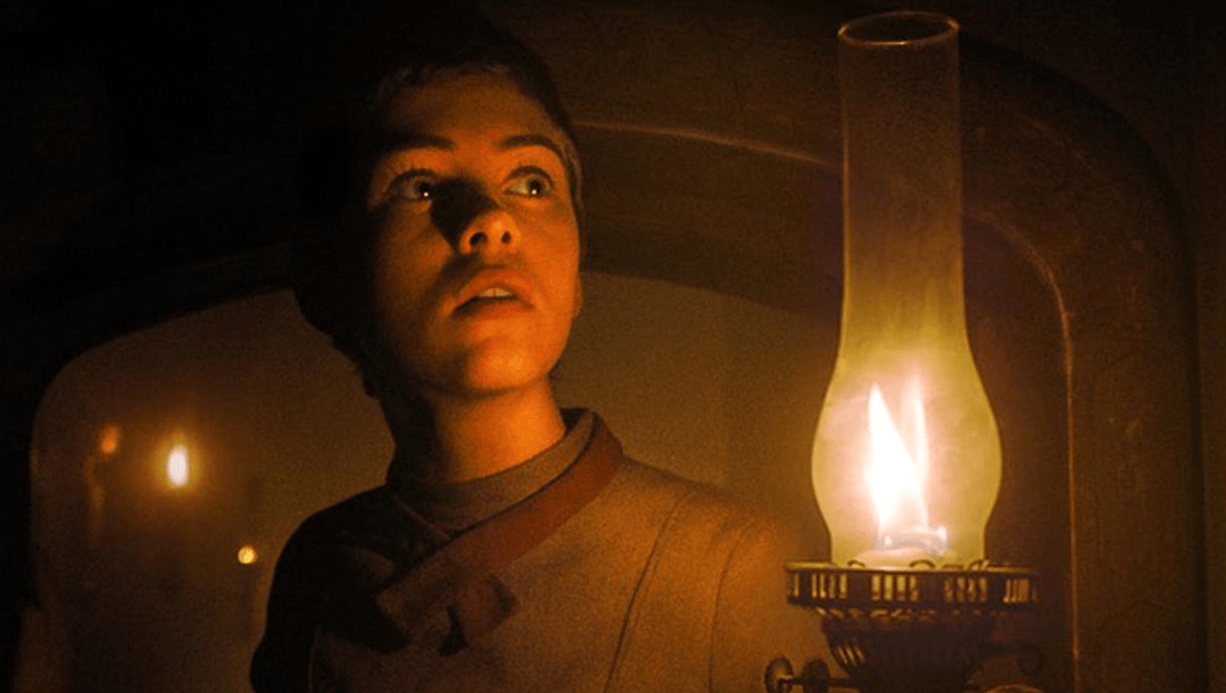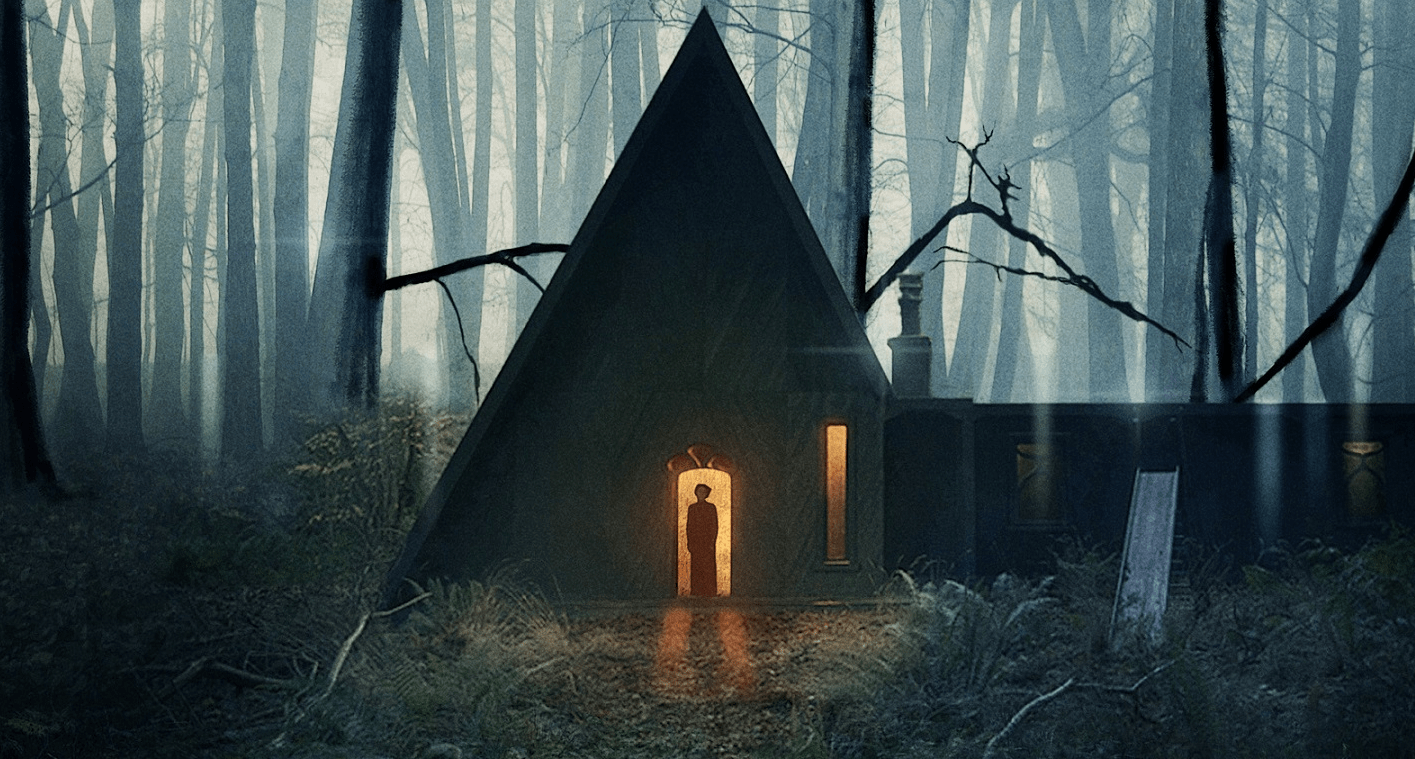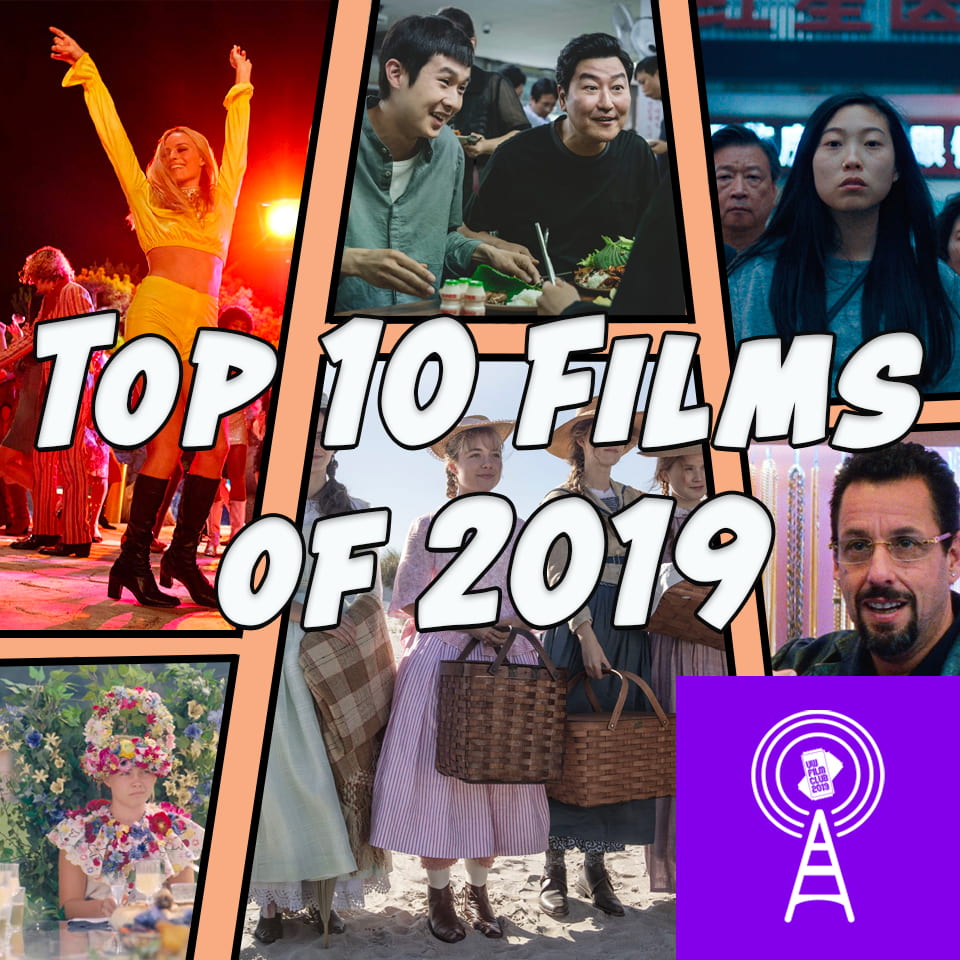2019 has been one of the best years for film of the past decade. The year was full of incredible and interesting sophomore efforts from rising star directors, like Ari Aster’s Midsommar, Jordan Peele’s Us, Robert Eggers’s The Lighthouse and Greta Gerwig’s Little Women. Industry veterans, like Tarantino, Scorsese and Bong Joon Ho added to their already impressive resumes. Big blockbusters also had their time in the spotlight as Avengers: Endgame broke box office records with its historic release in April. There were so many magnificent films from the past year that it was almost impossible to pick just ten of the best. Additionally, it wouldn’t feel right if I didn’t mention some honorable mentions that deserve recognition as great films.
Avengers: Endgame was the culmination of 10 years of storytelling that was finally brought to a satisfying conclusion. I was mostly astounded and impressed at the feat of making a big budget series end in a way that was coherent and satisfying. Ad Astra was a thrilling sci-fi epic telling the story of an astronaut who tried so hard to be his father only to realize that he should become his own man separate from his father. Booksmart was a refreshing female friendship and coming of age film, from a first-time director that had me dying with laughter. Under the Silver Lake and I Lost My Body were both films that had strange narratives but worked well and kept me interested throughout the entire runtime. After much consideration, these and many other great films just couldn’t make it into my top ten. Now that I’ve mentioned so of the greats from this past year, Let’s move onto my top ten favorite films of 2019.
10. The Irishman (Martin Scorsese, 2019)

Martin Scorsese brings us into the world of gangsters once again, but instead of the glitz and glamour of Casino and Goodfellas, we are instead treated to a slow paced, grim look at the life of one mobster, Frank Sheehan. This self-reflexive look at the gangster genre that Scorsese helped breathe life back into shows that being a gangster commonly left you either dead or alone with no one left to care about you. Although it is a depressing message, it reigns true and Scorsese reminds the audience of this with intro text for each new character stating how they died. The film’s 3.5 hour runtime doesn’t waste a second showing you how the lives of people are affected by the gangster lifestyle. While the expensive de-aging technology can only shave off a few years off the actors’ faces, their performances were as energizing as their performances from years ago. The Irishman is a captivating addition to Scorsese’s filmography that would be the perfect end to a strong, successful career.
You can read my full review of The Irishman here.
9. The Lighthouse (Robert Eggers, 2019)

Upon leaving the theater after watching The Lighthouse, I felt like I was a bit disappointed because I had expected to see something like Eggers’ The Witch. However, after letting the film ruminate, I realized that the film was a lot better than I had originally thought. Robert Eggers has created another disturbing period piece, which can become nonsensical at times with the plot, but still keeps the viewer engaged in what’s happening on screen. The decision to shoot the film in black and white helps set the tone along with the ominous music and sounds coming from the lighthouse. The 4:3 aspect ration also helps focus on a very performance heavy film. Both Willem Dafoe and Robert Pattinson give some of the best performances of this past year. Robert Eggers is yet another up and coming director that I personally can’t wait to see what he has in store for the future.
You can read PJ Knapke’s full review of The Lighthouse here.
8. Little Women (Greta Gerwig, 2019)

Greta Gerwig’s adaptation of the classic novel is a joy to watch in the cinema. Little Women follows the March sisters as they live their lives together and make their own paths following their dreams and aspirations. The film is a wonderful period piece that is exquisitely designed and shot. From the beautiful costumes to the well-crafted sets, it is clear every bit of the film was created with passion for the film. Saoirse Ronan, Timothée Chalamet, and Emma Watson were all stunning in the film and Florence Pugh definitely deserves her Oscar nomination for her role in this film. Greta Gerwig has successfully made both a low budget and middle budget film and I’m excited to see more and what she could do with a blank check.
You can read Stephanie Chuang’s full review of Little Women here.
7. Waves (Trey Edwards Shults, 2019)

The night of the screening I went to for Waves, I showed up at the wrong theater and had to Uber across town and barely got to the theater before the start of the film. All I could think about after I sat down was, “I really hope this film was worth the $16.77 for the Uber I took to get here.” Two hours and 15 minutes later I was sitting in my seat, silent in awe of what I just watched, and all I could think was, it was so worth that Uber to watch this. Trey Edward Shults has created this intense family drama that feels so real. The film is full of beautiful shots, scenes that will bring you to tears, and quite possibly the most needle drop soundtrack that exists. The budget to license songs for this film must have been half of its budget and it was worth it. This is another film I can’t wait to revisit as soon as I can.
You can read Rohan Patel’s full review of Waves here.
6. Knives Out (Rian Johnson, 2019)

Rian Johnson, the master of the genre subversion, has done it once again with Knives Out. This modern who-done-it is one of the most fun theater going experiences I’ve had in a while. I was pleasantly surprised at how Rian Johnson was able to keep me guessing right up until the very end. The film is well written, well-paced and Johnson’s ensemble cast does an incredible job of making his world come alive right on the screen.
You can read Rohan Patel’s full review of Knives Out here.
5. Once Upon a Time in Hollywood (Quentin Tarantino, 2019)

Quintin Tarantino’s 9th film sends us back in time once again to bring us his happy ending fairytale from the Hollywood of the late 60s. It tells the story of fictional actor Rick Dalton and his best friend and stuntman Cliff Booth as they go about their everyday business, all while a looming threat from the Manson family lurks in the shadows. If I could name one of Tarantino’s films that is the most ‘Tarantino,’ it would be Once Upon a Time in Hollywood. It takes place in the film industry and focuses actors and stuntmen as they go about their days filming and living their life. It would almost be a fitting end to his career in film, but he has his heart set on one more film and no one is going to stop him. While it is on the longer side, I still had a good time enjoying the slower parts of the film. Leonardo DeCaprio, and Brad Pitt both give great performances in the film and I think Margot Robbie’s role as Sharon Tate isn’t talked about enough, given how good it was. Once Upon a Time in Hollywood is definitely a film that I will be gladly revisiting as soon as possible and one that everyone should take the time to see.
You can read Jim Saunders’ full review of Once Upon a Time in Hollywood here and listen to UW Film Club’s podcast on Once Upon a Time in Hollywood here.
4. Uncut Gems (Josh and Benny Safdie, 2019)

An excerpt from my review – “Before going to see this film, I revisited Josh and Benny Safdie’s previous directorial effort, Good Time, and it reminded me why I was so excited to see Uncut Gems. From that film alone, it’s easy to see all the potential for the Safdie brothers both as writers and directors. Uncut Gems is the embodiment of that potential; they have found a type of narrative that they can tell extraordinarily well and a style that perfectly coincides with that narrative.” The film follows Howard Ratner (Adam Sandler), a degenerate gambler/jeweler in the diamond district of downtown Manhattan. The film follows Howard throughout the city as he is making bets and taking huge risks that he hopes will eventually pay off. Once the plot starts going it’s non-stop until the very end of the film. Howard Ratner’s character was written specifically for Adam Sandler and it is clearly evident on screen. It’s hard to imagine anyone other than Sandler as the sleazy 2012 gem dealer. This film is one of the most intense rides of recent years and everyone who is the least bit curious should carve out the time to see it.
You can read my full review of Uncut Gems here.
3. 1917 (Sam Mendes, 2019)

1917 is the “one shot” WW1 film that I didn’t know I needed to exist. 1917 takes you down into the tranches of WW1 as you follow two soldiers on their race against time to warn another battalion of an ambush. While the single shot style may sound like a gimmick, it serves to enhance the story, so well in fact that by the time you’re halfway through the film, you’ve forgotten all about it. It makes you feel like you’re right behind the soldiers, following them on their perilous journey, and it keeps you close to the horrors of being a soldier in WW1. All of this gets paired with Roger Deakin’s beautiful cinematography to create one of the best war films ever to be put onto the big screen.
You can read Levi Bond’s full review of 1917 here.
2. Parasite (Bong Joon-Ho, 2019)

There’s a reason that Parasite is near the top or at least on everyone’s top ten films of 2019 list. Simply put, it’s just that damn good. For those who haven’t yet seen this film, I’m warning, no, telling you to skip the rest of this entry. The best way to experience this film is to go in knowing absolutely nothing about it. Bong Joon Ho has created what I am willing to call a modern masterpiece. He’s made a film that has broken down a barrier and gotten people who wouldn’t normally head down to their local theater to watch a foreign language film to do so. It tells a captivating story with a social message that is well constructed and coherent (unlike another 2019 release that will remain anonymous). Everything about the film from the set design and the way that scenes are shot make this almost a perfect film that should (fingers crossed) win Best Picture.
You can read Joe Lollo’s full review of Parasite here and listen to UW Film Club’s podcast on Parasite here.
1. Midsommar (Ari Aster, 2019)

A24 was able to capitalize off the success of Ari Aster’s first full length film, Hereditary, and market Midsommar as the next horror film from an up and coming director. While there are disturbing images and jump scares, Midsommar isn’t a horror film. Ari Aster himself described it as both a fairy tale and a breakup film and I think that it falls into both of these categories and more. Aster has created a film that is outside the bounds of genre but still manages to tell a story about someone who has lost everything and goes on a journey to discover something she’s always been missing, something I’ve never seen before. A24 released the director’s cut of the film and just by extending a couple scenes and adding one or two more, the film is made even better than the theatrical cut. Ari Aster knocks it out of the park with his sophomore effort and I can’t wait to see his next projects. Finally, the performances in this film are outstanding. One of the biggest snubs this Oscar season is that Florence Pugh didn’t get a nomination for her role in Midsommar.
You can read Cynthia Li’s full review of Midsommar here and listen to UW Film Club’s podcast on Midsommar here.





































